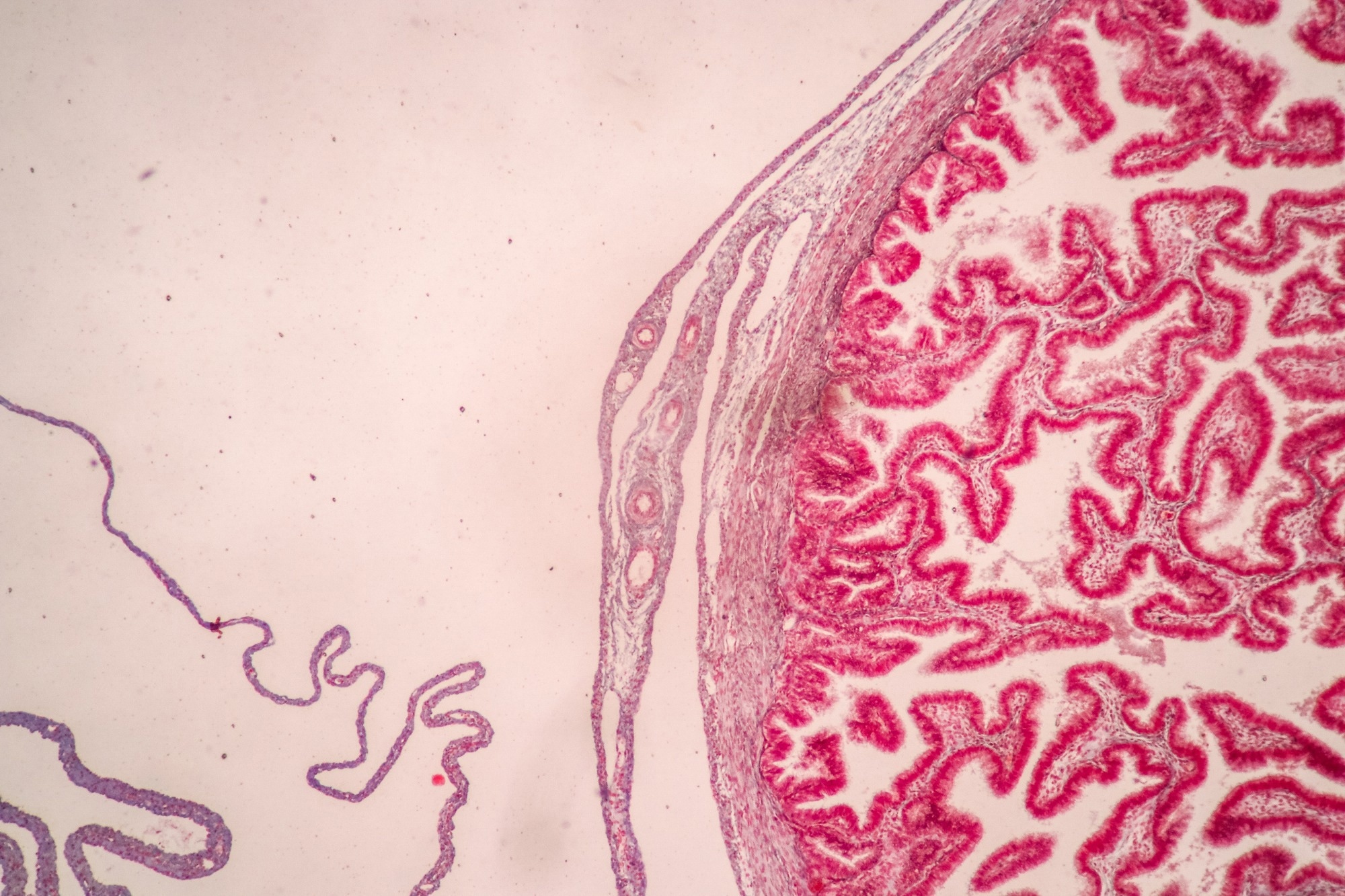They used these scores in a phenome-wide association study to determine whether this placental module was a reliable predictor of depressive and cardiovascular outcomes in adulthood.
 Study: Hofbauer cell function in the term placenta associates with adult cardiovascular and depressive outcomes. Image Credit: Rattiya Thongdumhyu/Shutterstock.com
Study: Hofbauer cell function in the term placenta associates with adult cardiovascular and depressive outcomes. Image Credit: Rattiya Thongdumhyu/Shutterstock.com
Background
Infants born with low birth weight are believed to be at higher risk of depressive outcomes and cardiovascular disease, as reported by early studies investigating the developmental origins of disease and health.
The placenta, the primary interface between maternal and fetal factors, is believed to play a critical role in regulating mental health and cardiovascular effects.
Studies on monozygotic twins report that those with a shared placenta have a six-fold higher concordance probability for schizophrenia than those with a separate placenta. Furthermore, genomic studies have found that placental inflammation plays a significant role in shaping adult health outcomes.
However, the inflammatory mediators influencing placental responses during infections are also expressed during homeostatic, healthy conditions.
Inflammation plays a critical role in fetal development, especially during the first trimester, and then in triggering the uterine contractions necessary for fetal delivery.
Hofbauer cells are macrophages specific to the placenta and play a major role in placental development, infection response, and angiogenesis. However, the part of Hofbauer cells in the health outcomes in adults during non-pathogenic conditions remains unclear.
About the study
In the present study, the researchers hypothesized that placental gene expression patterns related to inflammation in infants in non-pathogenic conditions would influence the health outcomes in adults. They used multiple cohorts, such as those from the United Kingdom (U.K.) Biobank and the Growing Up in Singapore Towards Healthy Outcomes (GUSTO) study to test\ the hypothesis.
Ribonucleic acid (RNA) sequencing data from 42 samples of placental villi obtained from the GUSTO study were used to identify the gene co-expression module related to inflammation upregulated in Hofbauer cells, for which a weighted correlation network analysis was employed.
Subsequently, the expression of quantitative trait loci related to the previously identified placenta was used to calculate polygenic risk scores that predicted the expression of genes in the placental inflammation module.
Furthermore, the relevance and functionality of the fetoplacental polygenic risk score were examined using a phenome-wide association study across the U.K. Biobank cohort. Traits with significant associations with mental health and cardiometabolic domains were identified.
Additionally, Mendelian randomization analyses were conducted to demonstrate the sex-dependent effects in protection against outcomes related to depression and cardiovascular disease.
In animal models, the enrichment of differentially regulated genes in the placental module was also explored for preterm birth, intraamniotic infection, and prenatal infection.
Expression of the genes in the placental module in Hofbauer cells was also examined for pregnancies where the mother had an active severe acute respiratory syndrome coronavirus 2 (SARS-CoV-2) infection.
Furthermore, the Drug-Gene Interaction database was used to explore pharmaceuticals that could be used as a prophylaxis in populations that had an increased risk of intra-uterine diseases during pregnancy.
Results
The results reported that the loss or disruption of the homeostatic functions conducted by the Hofbauer cells due to placental infections or preterm delivery could increase the risk of depressive outcomes or cardiovascular disease in the adult stages of life.
Preterm birth is often precipitated by intra-uterine infection, and the premature loss of placental function and, consequently, the aborted Hofbauer cell function results in a significantly higher risk of depression and cardiovascular disease.
The polygenic risk scores showed the strongest association with monocyte chemoattractive protein 1 (MCP-1), indicating that MCP-1 and potentially other placentally secreted molecules are vital in stimulating fetal development.
Furthermore, the premature termination of this and different endocrine signaling pathways could be contributing to the increase in depression and cardiovascular disease risk in adults.
The study also found that the placental expression quantitative trait loci showed a female-specific protective effect with respect to the risk of suicidal tendencies, indicating that the regulation of risk is sexually dimorphic and begins during early development.
The analysis using the Drug-Gene Interaction database identified aspirin as a potential prophylactic drug for pregnant women who are at an increased risk of intra-uterine infections.
Conclusions
Overall, the findings reported that the disruption of Hofbauer cell function during pregnancy, either due to intra-uterine infections or preterm birth, increases the risk of depressive outcomes and cardiovascular diseases during adulthood.
A placental module of gene expression related to inflammation response was identified in Hofbauer cells, with associated polygenic risk scores to predict the expression of that module.
Additionally, aspirin was identified as a potential prophylactic agent for use among women at high risk of intra-uterine infections.
Journal reference:
-
Fitzgerald, E., Shen, M., Yong, H. E. J., Wang, Z., Pokhnisneva, I., et al. (2023) Hofbauer cell function in the term placenta associates with adult cardiovascular and depressive outcomes. Nature Communications. doi: https://doi.org/10.1038/s41467-023-42300-8